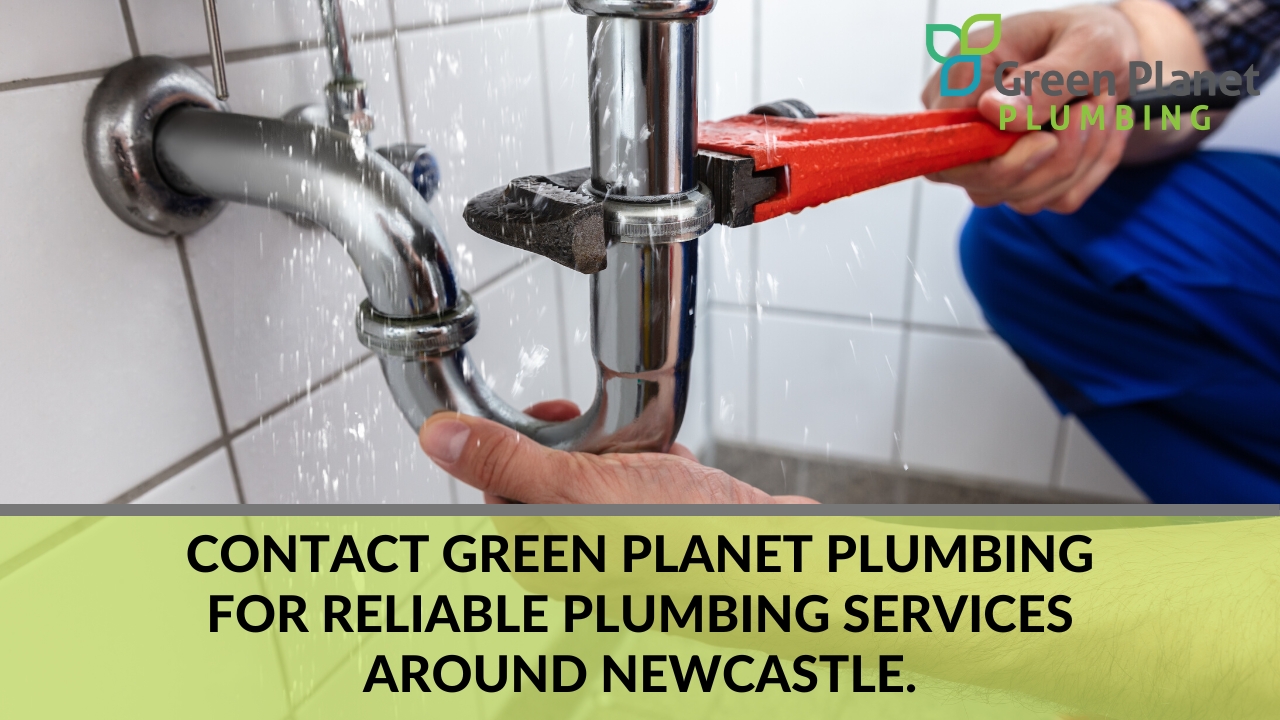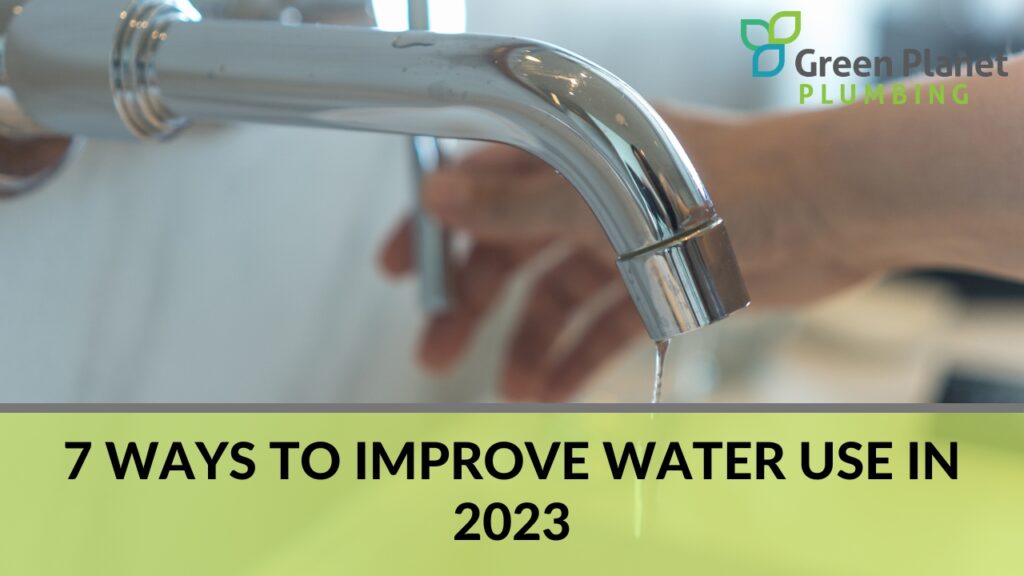Small changes that bring huge benefits to you and the planet.
Water is one of the most important natural resources. It sustains life on Earth. Yet, while the Earth’s surface is around 71% water, it is still considered a scarce resource. It is because 97% of the Earth’s water is saltwater in the ocean. Only the remaining percentage makes up for fresh water, which people use daily.
Fresh water is used for drinking, bathing, cleaning, flushing toilets, and food manufacturing. It is essential to everyone’s health and helps flush out body wastes and regulate body temperature. However, usable fresh water is not an unlimited resource. While rainfall can replenish water supplies, drought can easily bring them down to dangerous levels. Conserving water use is a task that every responsible citizen should take part in.
The new year is coming up, and it is time once again to make plans for changes and improvements. So, why not include plans for improving the household’s water use in the coming year? It would benefit not just the household but Mother Earth as well.
1. Assess water usage.
Before anyone can improve their water footprint, it is best to understand first how much water one consumes. Check the water bill. How does the household’s monthly usage compare? Is it consistent and reasonable, or is it too high? Some utility providers provide insight into how one’s consumption compares with the consumption of others using the same services. For reference, the average quarterly water bill for households in New South Wales is $204.
Next, assess water usage and see where usage can be reduced. Even the smallest of adjustments can have an impact. Time showers, and do not leave taps running when brushing. While showers are relaxing, too much shower time means more unnecessary water wastage.
Use the washing machine when it is full or adjust the settings when the load is smaller. The same goes for the dishwasher. Scraping off food scraps from plates instead of rinsing them off also helps.
Some also suggest putting a bucket in the shower to catch excess water. This water can be used for plants or grass in the yard.
2. Schedule regular plumbing maintenance.
A higher-than-usual water bill can mean water leaks. Dripping taps are not only annoying, but they also waste so much water. For example, a dripping nozzle can waste around 9,000 litres of water a year. Leaking toilets, on the other hand, can waste at least 60,000 litres of water. However, some leaks are hidden from plain sight. Only when one is fully aware of his water usage will he know that something is wrong when his water bill suddenly shoots up.
You can confirm that there are leaks by doing the following steps:
- Check the number on the water meter. Write it down.
- Turn off all taps tightly. Do not use any water within the next hour.
- Check the meter after an hour. If the numbers have increased, there is a high probability of leaks.
Of course, regular plumbing maintenance can help reduce the risks of leaks. A reliable and experienced plumber will be able to spot the problems before they blow up. In addition, it helps ensure that the household only pays for the water they use. It also protects the home from costly water damage and inconveniences.
3. Upgrade home appliances
The Water Efficiency Labelling and Standards (WELS) provides buyers with information on how water-efficient a certain product is. A household can save up to $175 annually with water-efficient appliances.
Look for a blue star water rating when going shopping for new appliances, such as dishwashers, showers, washing machines, taps, and toilets. The label offers two key pieces of information: the WELS star rating and the water consumption or flow figures.
The WELS star rating provides information on water efficiency, the more stars on the rating, the better. The second information gives the average water consumption per use or average flow per minute, depending on the product. For instance, dishwaters display the average water consumption per use, while showers display the average flow per minute.
The scheme helps consumers in making informed decisions when purchasing. It allows them to compare and choose products that will help them save on their water usage and utility bills. Products registered with WELS follow a specific process and are tested at NATA-accredited laboratories.
4. Wash cars conscientiously.
The average water used when washing cars is around 100 to 300 litres. Of course, cleaning cars cannot be avoided. Below are some tips to help save water consumption when washing cars.
Dust off the car before washing. Sometimes, dusting it off is all it needs to make the car look clean. Of course, do not just use any rag or old cloth. Instead, use a soft and clean microfibre duster or towel to avoid unsightly scratches. Dirty cars need more than just dusting. When washing them, use buckets of water instead of a water hose. It is easy to control the amount of water used with a bucket instead of a continuously flowing water hose.
Another option is to clean the car by the garden, where the run-off water can be absorbed and used by the soil. When doing this, ensure to use biodegradable shampoos to protect the plants.
5. Install tankless water heaters.
Tankless water heaters heat water on demand. Unlike water heaters that use a holding tank, one does not need to wait between turning on the tap and when heated water comes out. Using tankless heaters eliminates the wasted water going down the drain while waiting for hot water.
Since water is heated on demand, a continuous stream of hot water is provided. Therefore, one will have enough hot water to use. This can be disadvantageous since some people may take longer showers than necessary. The water-saving benefits of a tankless water heater must be paired with conscientious water usage. It is best to time every shower to reduce water wastage.
6. Collect cold water.
Another way to reduce water wastage is to collect the cold water in a water bucket while waiting for the hot water to come out. The cold yet clean water collected can be used in other home chores, such watering plant or cleaning the floor. Since it is clean, it can even be used to bathe pets.
7. Do not wash produce under running water.
When washing fruits and vegetables, use a bowl instead. Fill it with water to wash the dirt off the produce. A running tap produces up to 12 litres of water in a minute. Washing produce in a bowl helps save on water. The used water can then be utilised to water the garden.

Commonly Asked Questions
Here are the answers to some burning questions which can help households save water.
Can harvested rainwater help?
Rainwater can be used for many things. For example, it can be used to water plants, flush toilets, and clean the floors. The government even offers rebates to help Australians invest in a rainwater harvesting system.
What is the ideal shower time?
To help save water, one should refrain from showering for more than four minutes. Use a timer or playing a four-minute song to stay on track.
Is showering more efficient than bathing?
Many people believe that using the tub is more wasteful than using the shower. However, it is not always the case. For instance, the size of the tub can clearly affect how much water is used. Avoid overfilling the tub and reuse leftover bathwater for other chores.
Can I reuse cooking water?
It is unavoidable to use much water when boiling certain foods. Do not panic. You can still reuse the water that was used in cooking. Set aside cooking water to boil other foods, make soup, clean the sink, or water the plants.
Is a motion-sensing faucet helpful?
A motion-sensing faucet can help save water since it will automatically turn off once the user pulls his hands away. It is ideal for cleaning hands since the user does not need to touch the faucet with dirty hands to turn it on.
Are there ways to reduce garbage disposal use?
Garbage disposals are a convenient part of the plumbing system. However, it uses water. Reduce usage of garbage disposals by composting. Check also if there are green waste programs in the neighbourhood.
Is there an alternative to boiling food?
Yes – steam foods instead of boiling them. It requires less water than boiling. It also preserves more food nutrients. The water used in steaming can then be reused once cooled.

Contact Green Planet Plumbing for Reliable Plumbing Services around Newcastle.
Green Planet Plumbing is a family-owned and family-operated company that has been serving the area since 2008. Its team of licensed and local plumbers is equipped with the expertise and tools to ensure that you have a properly working and efficient plumbing system.
Call us on 02 4911 9402 for your plumbing emergencies, and we will be there to solve your problems. You may also email your enquiries to hello@greenplanetplumbing.com.au.

